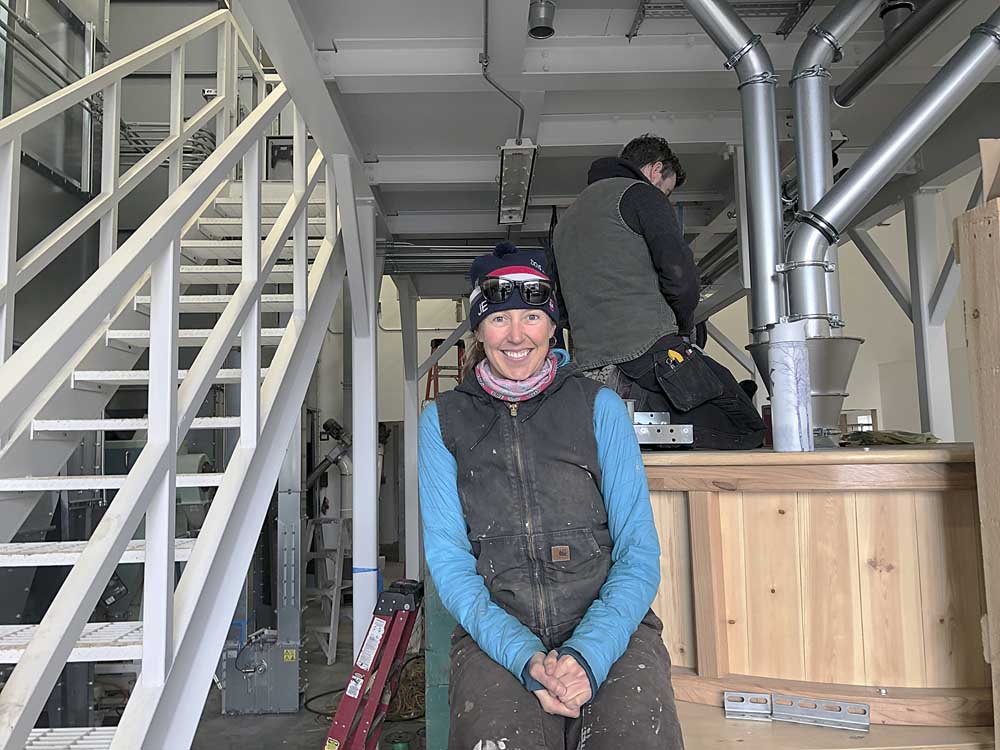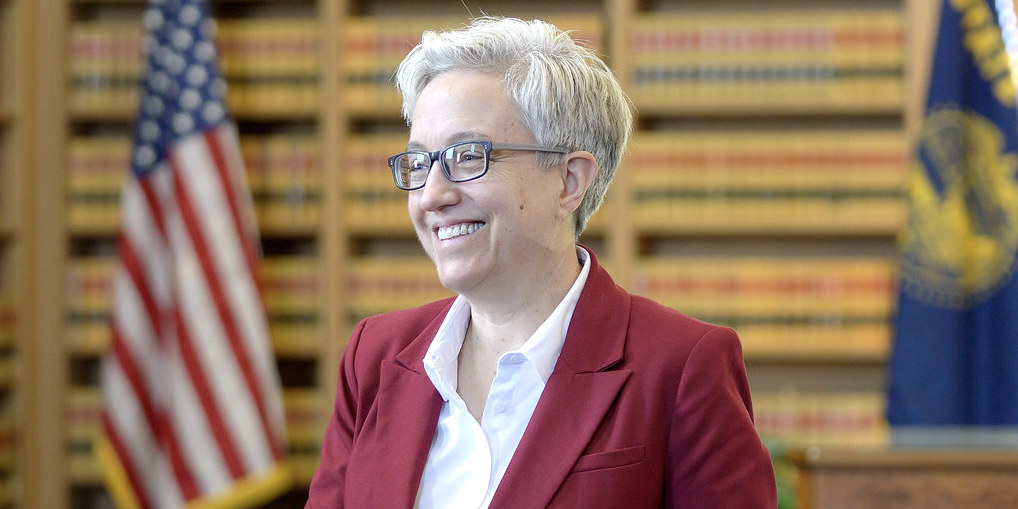New flour mill aims to add to grower, consumer options
Published 9:30 am Friday, April 5, 2019

- Hillside Grain owner Brett Stevenson.
Owners of a farm south of Sun Valley, Idaho, expect to have their new flour mill in operation by the end of April.
Trending
Bulk wholesale supplies to bakeries will initially be Hillside Grain’s primary market, owner Brett Stevenson said. Retail and direct sales will also be pursued eventually at the mill, sited on part of the large Hillside Ranch barley and wheat farm.
“Mid-scale food production and being able to process some Idaho-grown grains locally is pretty exciting, as is fresh flour,” she said.
Wheat and barley industry representatives say expanding processing capacity in the state, and the accompanying market opportunities, will benefit growers.
Trending
About half of Idaho’s wheat crop, including most of it grown in the northern part of the state, is exported. Southern Idaho has more local processing.
“It provides another market channel, another way for Idaho wheat growers to get their product to market,” Wheat Commission Executive Director Blaine Jacobson said. For the established artisan-bakery segment, flour that goes from field to mill directly is a logical next step that could “be to the baked-good industry what craft beers are to beer.”
As for barley, much is grown for beer malters, but the industry sees growth potential on the food side.
Food barley “is not huge yet in Idaho, but it is a growing industry,” said Mike Wilkins, a state barley commissioner from Rupert in south-central Idaho. Additional processing will increase market options for growers. Prospective food-barley processors, like the malters, figure to benefit from the crop’s irrigation-assisted quality and consistency.
The Hillside Ranch farm has operated for more than 45 years. Stevenson said her father, owner John Stevenson, typically grew mainly malt barley for a major brewer, and some alfalfa for dairies. He started growing more hard red and soft white wheat in the past couple of years in anticipation of the mill opening. The farm has 80 acres of winter wheat in the ground and probably will plant another 80 acres this spring.
“Idaho is a great grain-growing state,” Brett Stevenson said. “I wanted to be able to process some of our own grain, and to be able to utilize our grain more directly.”
Features of the Hillside Grain facility include a Netherlands-made stone mill about five feet in diameter, a sifter, grain cleaner, bagging machine and custom control panel. Production capacity of 1.5 million pounds per year provides room for growth.
The stone mill initially will produce mostly wheat flour, some barley flour and “berry” kernels that can be eaten.
The flour — which will retain the germ, have no additives and be made using sustainable practices — ideally will reflect “processing grain in a way that is more meaningful to consumers,” Stevenson said. “Consumers have more interest in local and regional food, and in transparency.”
Clientele is expected to be “local and regional first and foremost, mostly bakeries,” she said. “I anticipate there will be interest in our products from outside the region” eventually. The business has a social-media presence and soon plans to launch a website.
Stevenson, 40, earned a bachelor’s degree from the University of Colorado and a master’s degree from the University of Montana, both in environmental studies. She worked as a county planner and most recently ran a nonprofit.
“I was always trying to carve out more time to be involved in the farm,” she said. “I never quite found enough, so I quit my last job. I just saw a shortage of ways to process grain in southern Idaho.”
Part of Stevenson’s research for Hillside Grain led her to natural flours that she discovered were more flavorful and easier to digest than many mass-produced alternatives.
Former state barley commissioner Tim Dillin and his wife, Julie, have a flour mill on their farm north of Bonners Ferry, near the border with Canada. Marketing and logistics pose challenges given the site’s remoteness, but customers like the product.
“People like to know that you grow it and mill it,” Tim Dillin said. “They like to know the story of your farm.”







